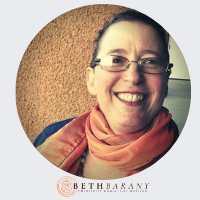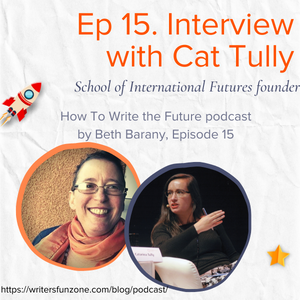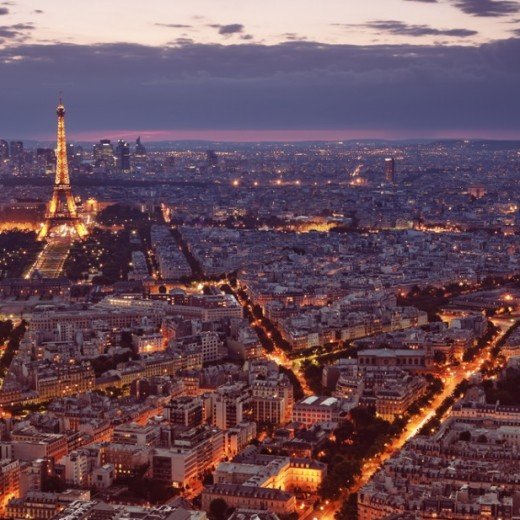Interview with Cat Tully, School of International Futures Founder
In this episode creativity coach and science fiction/fantasy novelist Beth Barany interviews the School of International Futures founder Cat Tully where they discuss how Cat started the school, how she organised the SOIF retreat and shares a superpower she has.
Have a listen to the latest episode on Apple Podcasts | Google Podcasts | Spotify | Buzzsprout | Amazon Music | Podchaser | Podcast Addict | Youtube
ABOUT BETH BARANY
 Beth Barany is an award-winning novelist, master neurolinguistic programming practitioner, and certified creativity coach for writers, including being a workshop leader & keynote speaker. Beth has published books in several genres including young adult fantasy, paranormal romance, and science fiction mystery.
Beth Barany is an award-winning novelist, master neurolinguistic programming practitioner, and certified creativity coach for writers, including being a workshop leader & keynote speaker. Beth has published books in several genres including young adult fantasy, paranormal romance, and science fiction mystery.
Learn more about Beth Barany at these sites:
Author site / Coaching site / School of Fiction / Writer’s Fun Zone blog
RESOURCES
School of International Futures: https://soif.org.uk/
Sign up for a Discovery Call
https://writersfunzone.com/blog/discovery-call/
SHOW NOTES
“I sat in a room full of people, learning foresight and who cared about the future of humanity and who are actually. Doing something about it. I felt like I was home.”
In this episode creativity coach and science fiction/fantasy novelist Beth Barany interviews the School of International Futures founder Cat Tully where they discuss how Cat started the school, how she organised the SOIF retreat and shares a superpower she has.
We covered:
- How Cat came to start the School of International Futures
- What led Cat to personally to bring together all her skill sets and what gave her the confidence to create the School of International Futures retreat
- The superpowers Cat has to create her connections and events
- About the Horizons Model, H1, H2, H3
About Cat Tully
Cat Tully is the founder of SOIF, the School of International Futures. Cat has extensive experience as a practitioner, helping governments, civil society and businesses to be more strategic, more effective, and better prepared for the future. She is motivated by a focus on social justice and the importance of multi-stakeholder approaches to the challenges of the 21st century world.
Website: https://soif.org.uk
Email: cat@soif.org.uk
ABOUT THE HOW TO WRITE THE FUTURE PODCAST
The How To Write The Future podcast is for science fiction and fantasy writers who want to write positive futures and successfully bring those stories out into the marketplace. Hosted by Beth Barany, science fiction novelist and creativity coach for writers.
Tips for fiction writers!
This podcast is for you if you have questions like:
- How do I create a believable world for my science fiction story?
- How do figure what’s not working if my story feels flat?
- How do I make my story more interesting and alive?
This podcast is for readers too if you’re at all curious about the future of humanity.
TRANSCRIPT for 15. Interview with Cat Tully, School of International Futures Founder
[00:00:00] OPENER
Are you stuck with your story and don’t know how to get unstuck?
Are you a novelist who wishes to be more prolific?
Or maybe you’ve written that first draft and you just don’t know how to make it better.
Then sign up today for a No Obligation Discovery Call with me Beth Barany – Creativity Coach and award-winning science fiction and fantasy novelist.
I look forward to seeing how I can help you.
So sign up today, the link is in the show notes, and now let’s get on with the show.
[00:00:40] WELCOME
Hi everyone. Welcome to our next episode of How to Write the Future. This is a podcast for science fiction and fantasy writers who want to create optimistic stories because when we vision what is possible, we help make it so.
I’m your host, Beth Barany. I am a science fiction and fantasy writer myself and a creativity coach, focusing on helping science fiction and fantasy authors with their stories.
[00:01:11] INTRO to SOIF and CAT TULLY
This past August, I sat in a room full of people, learning foresight and who cared about the future of humanity and who are actually doing something about it. I felt like I was home.
Since I was 13 I wish to work on a global scale, I’d even made a dire Rama of the United nations for school project, with a cardboard box and little figures, and even drew flags. I imagined myself in that room with other people from around the world who cared as much as I did about the future of humanity.
So there was this past August in a beautiful facility and hotel. I was at the School of International Futures retreat. We were learning and discussing and problem solving and asking questions.
It was amazing.
I love this quote by Einstein, “No problem can be solved from the same level of consciousness that created it.”
The School of International Futures is there to help us build better futures for humanity. They offer foresight trainings, community weaving. Support for a global network of next generation practitioners. And I was on their summer retreat. I got to network with amazing people from around the world, including the founder of the School of International Futures, Cat Tully.
Her bio on the website says that she has extensive experience as a practitioner, helping governments, civil society and businesses to be more strategic, more effective, and better prepared for the future. She’s motivated by a focus on social justice and the importance of multi-stakeholder approaches to the challenges of the 21st century world.
I had the great privilege of interviewing Cat during one of our mid morning breaks outdoors at the beautiful Lainston House hotel in Winchester, England. Enjoy our interview.
[00:03:38] PART 1
People ask me, Did, did they find you or you found them? I’m like, I found them. You know, But I, I can’t remember how I found you, but it really resonates with me because I’m an educator and a learner. And here’s a school focused on futures and international futures.
Yeah. Which I love has an inclusive quality. Yeah. So how did come to start the school?
I have worked doing strategy work, so I’m not futurist. right. Um, doing strategy work from, uh, civil society, working with Christian Aid and then working across Africa and the Middle East and Central Asia.
And I worked with Proctor Gamble, the space and then worked in government in the Prime Minister strategy unit and then in the foreign office policy planning staff. Uh, and then I came to like, the government changed in the UK and the space for doing long term thinking actually shrunk and we’ve been doing amazing work in the UK like building the capacity of the, of the government to do long term thinking really well.
Um, And, and then I was like, well, you know, I really want to continue doing that outside of government and share what we’ve learned, but also create a space to focus on those three things that we had as an initial hypothesis, which is like, you can be, we can do so much better at teaching how to use this to create transformation and impact, right?
Like this isn’t just about using, you know, thinking about scenarios or it’s about doing it with purpose, to create change. So like how do you teach the full range of, uh, of an approach to help people use this to create transformation in their communities and in their gut societies and in their families and in their organizations today.
And then we also had an instinct that this having a structured way of being able to talk about the future was a skill that was gonna become increasingly important to different communities as we were moving into a more and more uncertain world as our traditional political representation stops working political parties and it’s just got worse.
Right? Yeah. So this ability, you know, disability of a community and people to kind of have futures literacy and think about it. It was gonna be a really important skill. So we’re like, let’s lean into that as well and think about how we teach that and then the third one is like, and when you are, you know, building this skill, people need to bring their whole self.
It’s not an academic, it’s not an intellectual exercise, this is about hopes and fears. This is about, um, helping people let go of, you know, their real internal held belief of what the future’s gonna be. Um, and that’s a very scary process. And so to design that kind of thing, you need something that really holds someone in their totality through that journey.
Yeah,so that’s a little bit the kind of hypotheses is it was like, we want to create an organization that, that does all of these thing and, so now, you know, that involves having, you know, we have a next generation foresight practitioners community, so that’s like, you know, everyone in the world to be able to use futures approaches.
So we need a whole cohort of people globally to be able to bring that to them and to innovate new tools and approaches. We do work on intergenerational fairness, which is about how do you then get leaders to then make sure that they think about their long-term impacts, um, why, because let’s. They can know what the right thing is to do, but then they’ve got elections next week, or you’ve got shareholder returns in three months time.
So like how do you kind of counterbalance that incentive to always affect the short term? And I think the only way that you can do that is by kind of marshaling and scrutinizing and bringing, especially generation said voices. To kind of this is not okay. You are a leader for next generations as well as just this one.
And every single time you just make a decision, I’m gonna scrutinize you and give you a red, a green or a yellow light. Light on how this is affecting other people, not just today. And then we’ve got work. Um, you know, we really do a lot of work on the kind of training, these kind of retreats and we do a lot, this is once a year, but we have virtual trainings as well.
And then we work with sectors and organizations to help them use this to kind of create change, whether it’s the counter proliferation sector, whether it’s the World Health Organization, whether it’s the humanitarian sector. So all of this, what this has in common is basically weaving coalitions of different people.
Early adopters in horizon one, horizon two, and horizon three actors to kind of create change and transformation. So that’s the kind of, that’s a kind of an approach and a set skills and tools that, that we think are really important. But it’s kind of quite difficult to talk about it. Right. So you have to live it.
Yeah, absolutely.
[00:08:51] PART 2
One of the things I, I’m really curious is what led you personally to bring together all your skill sets and what gave you the confidence? And I guess I’m asking from someone who’s considering maybe creating something, I don’t know, but, or others, like what gave you the confidence that you could do this, that you could pull your buddies together, your friends, your cohorts, your colleagues and say, this is what we’re gonna do.
Cause it sounds like you’re the one who said, This is what we’re gonna do. And pulled people together, brought people into your vision.
Yeah, yeah, yeah. So it’s been a 10 year journey, right? Yeah, and it kind of stormed off because I had to leave the UK government because I wasn’t prepared to work for the conservative government.
Um, and I was applying for different jobs and I was like, nothing. It was as exciting as the work that I was doing before. So I just want to create a space where we can do this but outside of government and let’s just try it and we had already done a similar kind of retreat a couple of times when I was in the UK government and it was like, Well, let’s try that.
So we actually, it was a little easy for us because we already had the venue, we already had the relationships, so for the first three years we were at Wilton Park. So I think it was a very kind of an easy entry point to doing something that was familiar and then, um, and, and then as more and more people came along, they were like, well, we’d like to work with you outside of these, this just this annual event.
Mm-hmm… and you know, then we were like, oh look at all this amazing research that happens. We can kind of learn from all these different organizations and then te, you know, share this research. And then we realized that we had a kind of community that we were effectively weaving and then we came across the network weaving, uh, field and realized that that was a really helpful way of helping us think about more structurally what we were doing naturally anyway.
But I think to your particular question about, you know, Whether it’s courage or appetite for risk. You know, I have no children. I have no, I don’t have family, I have a kind of distributed approach to intimacy and happiness and relationships, and so I’m very much a natural networker and I love spending time with people, and I love creating spaces where people bring different things of themselves and organizing parties or gatherings or salons and holding a space and a structure where there’s concepts and simple rules as vendor says, but that the magic can emerge. So it kind of feels like a skillset that I really kind of energize, get energized by.
There was little downside because the one sensible thing that I did right at the beginning of my career was to buy house, and then I’ve taken job decisions that where I make less and less money every single time, so I don’t care about money, but I’m also very privileged, hugely privileged to be in a situation where I don’t need to worry about money. Um, and so the risk issue wasn’t too great. Um, and I feel as if I’m hugely supported and I’ve been very lucky throughout my career to have moved across different sectors and always stayed in touch with people.
So having that very thick network means that you can call upon it. Um, and that’s, you know, that’s what I do when I travel the world, is just like, say hi to people and find out what’s happening and I, I’m just able to kind of live in that way and keep my ear to the ground and always kind of weave those different things together.
And then it’s like tapestries basically, It’s just like you can make beautiful things. And, um, yeah, work with people to do that.
That’s beautiful, you’ve really leaned into your strengths. You’re really coming from your strengths of networking, plus probably all your strategic work. And, um, and there’s also an ease that you have with connecting with people that I find, I mean, over here it’s just, it’s very easy. Whereas sometimes you feel like people might have an agenda or they’re trying to go somewhere. Yeah. You’re more open, You’re curious. Yeah. Yeah. Yeah. And I think that really helps. Yeah. I mean, that’s core.
[00:13:03] A Superpower Cat Tully Has
A superpower that I do have is that I’m kind of authentic and I, I’m really, I’m kind of clumsy and I’m not polished, but I think people kind of get. The fact that I’m well intentioned. Do you know what I mean? It’s, yeah. And that is actually, people don’t think I have an ulterior motive apart from the curiosity of like just making stuff happen and be beautiful.
And that’s actually quite a useful superpower, another superpower I have is like spotting amazing people. So I think it’s that kind of being able to connect people into the purpose, a bigger purpose to motivate them and also, you know, being able to, to spot and have the instinct and the confidence to kind of go that someone that there’s, because I hear it, right because it’s almost like in that conversation you, you hear a ringing in your ears and it’s just like things. Yep. And that’s, I think that’s really, that’s really good.
Absolutely. You’re able to, I mean, that allows you to bring in those people into the network and into the teaching space or contribution space, but also the way you’ve like already connected me with people, you know, like you’re hearing what I need, you’re hearing what they need, you’re hearing the commonalities.
Like the fact that you paired me and Jean together, like that’s the space agency thing. Right. But there’s. We have a lot in common, and there’s also a way we approach being here this week, we’re both sort of open and just bringing it in. we have similar agendas in that way.
[00:14:30] The H1, H2, H3 – Horizons Model
So I was curious about this. H one, H two, H three, it hasn’t been explained to us.
Okay. So let’s say for example, we are in a world where we drive around with hydrocarbon cars run by gas petrol.
Uh, this is horizon one. We have a series of you know, our entire infrastructure, public infrastructure, our cars, the way that we travel to work and back in terms of commuting our insurance companies around, uh, cars, liability, you know, petrol stations, you know, all the kind of tankers that travel around the world.
You know, so much of the reality is kind of our horizon one is, is, is defined and we can live in that horizon one and we think that that’s, that’s reality. Yeah. Yeah. But then there it is possible to imagine a world in which we’re not in a world of hydrocarbons, that cars are, are being part, not even cars, but let’s say they are cars, but they’re had by electronic vehicles.
Now, that might have a fundamental shift in the ownership of cars, for example, because people might end up because actually just not having to own cars. They just basically bring it to where they need to be. Yeah. Like cars will then potentially be a mechanism for moving energy around, because they’re all big batteries that could potentially, so your way of actually distributing energy across a city might be different.
We may actually live in, you know, will we still be in suburbia how we think about commuting? And certainly, you know, the kind of big tankers and all the kind of value chains and like leading up to, to, you know, will plastics become more expensive? Cause they’re not a side product of the petroleum industry because you know, will we need new forms of insurance and legal frameworks because, you know, all that kind of stuff.
So. Mm. Especially if you end up having driverless cars, you know, so, so you have a, you can start imagining a world in 2050, which actually looks very, very different in terms of, you know, legal ways of life. Mm-hmm. the economy, how it works. And that’s kind of horizon three and what we’re often trying to do is try to really get under the skin of what that horizon three looks like.
Okay. And then horizon two is the entrepreneurs that are beginning to kind of start innovating that. And they’re often people who have seen a new form of technology and are like, Let’s try and make that work so people who are actually producing these, um, Uh, driverless cars or perhaps an analogy might be, you know, like drones for example.
See, you know, what’s Amazon doing with the kind of drone delivery? And so, so you, the signals of change are already there. Yeah. And so William Gibson’s quote, which is that the future is already here, it’s just unevenly distributed is a way of talking about that, which is like even in here and the now, you have signals of that horizon two and horizon three there.
And so what we’re often doing in future’s work is bringing that all together and helping people understand that those different horizons are really effective ways of kind of going, this is the status quo that people need help getting out of. Right. Horizon three is like, that’s what the kind of status quo and the future is gonna feel like.
Mm-hmm. . And then the horizon two is the kind of ways between that, so horizon one peoples are incumbent, they’re that people vested in the here and the now. Right. But even among them, there’s earlier doctors who know that they need to lead into the future, but they don’t often know what that future’s gonna look like.
But they know that it’s gonna be different. Right? Yeah. Horizon two are people who are like, Right, let’s get it done. . Yeah. And Horizon three are people like you who are the visionaries. Right. And and the interesting thing I think of the work that we do is that we are, we are weaving coalitions of people in the earlier doctors in horizon one, people in horizon two, and people in horizon three to come together to think about what does this future of our humanitarian sector look like.
Yeah. Um, what are the kind of future, uh, crises and the ways of responding to it, What the future legal frameworks that we need to take into account the crises may be pla taking place in space. Yeah. So, so that’s the kind of, and that’s the language that you can then use to kind of say, it’s why we find it really difficult to talk to each other.
Right? Yeah. Because we’re different sitting in different, but the task is to bring people together, help them build, be able to, and then work, work together on that journey. Yeah. Does that make sense?
Yes. I, I love it because it, it, because you’ve now created a framework to put different groups in and people can also self identify.
Well this was fabulous. This is great.
Well, thank you Cat.
[00:19:07] SOIF SITE
If you were interested in the School of International Futures, go to their website, which is S O I F dot O R G dot U K.
[00:19:18] OUTRO
Write long and prosper.
Science fiction and fantasy writers, sign up for your No Obligation Discovery Call and get clarity to your writing process and finish your book.
Loved this episode? Leave us a review and rating here: https://www.buzzsprout.com/2012061
or in your podcast home of choice.
ABOUT BETH BARANY
Beth Barany is an award-winning novelist, certified creativity coach for writers, and a workshop facilitator. In addition to her how-to books for writers, Beth has published books in several genres including young adult fantasy, paranormal romance, and science fiction mystery.
Show production by Beth Barany
Show notes by Kerry-Ann McDade
Connect with Beth Barany: https://twitter.com/BethBarany
CREDITS
EDITED WITH DESCRIPT: https://www.descript.com?lmref=_w1WCA
MUSIC: Uppbeat.io
DISTRIBUTED BY BUZZSPROUT: https://www.buzzsprout.com/?referrer_id=1994465
2022 BETH BARANY
For more “How To Write the Future” episodes, go here.
If you’d like to invite Beth onto your podcast, drop her a note here.





[…] 15. Interview with Cat Tully, School of International Futures Founder […]